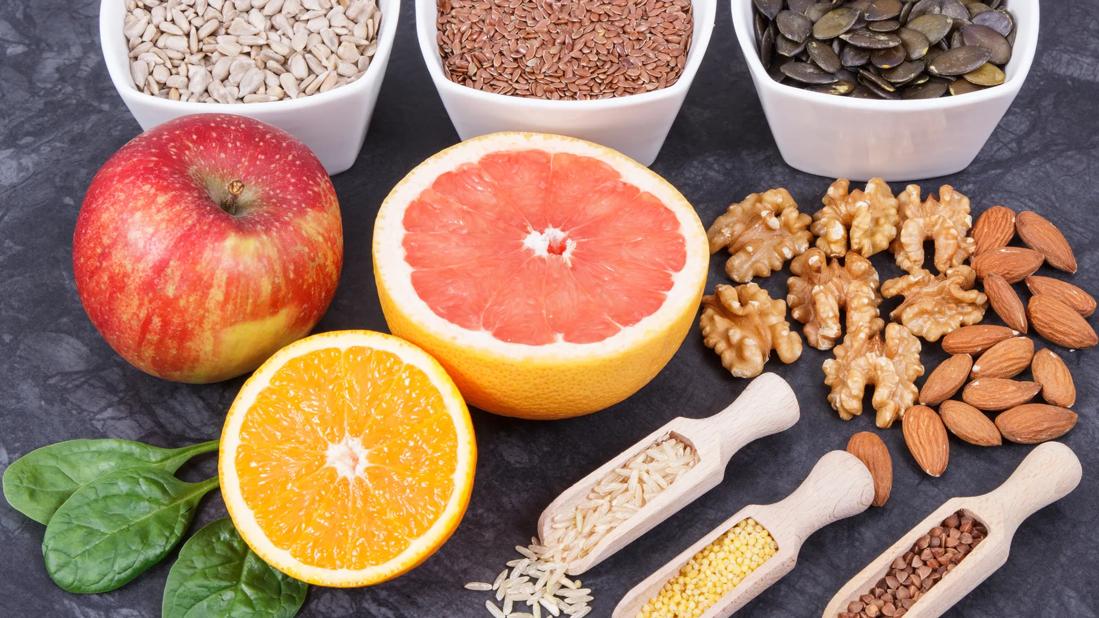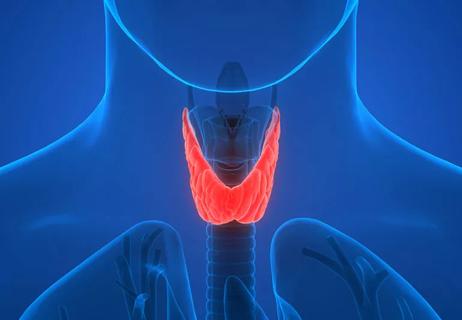No diet can cure hypothyroidism or hyperthyroidism, but some foods and supplements can cause trouble

There’s a lot of advice out there about foods to avoid if you have a thyroid condition. But it’s important to recognize that the recommendations will change depending on your specific condition.
Advertisement
Cleveland Clinic is a non-profit academic medical center. Advertising on our site helps support our mission. We do not endorse non-Cleveland Clinic products or services. Policy
Foods to avoid for one may be just fine for the other. And vice versa.
How do you follow a healthy hypothyroidism diet? And what do you need to know about getting proper nutrition when you have hyperthyroidism?
Endocrinologist Ravali Veeramachaneni, MD, walks us through some of the most common foods and supplements that people with thyroid conditions are told to avoid and offers advice on what to consider.
You may have heard that it’s best to limit or cut out certain foods to help manage your thyroid condition. But ... why?
Some foods and supplements can interfere with medications for thyroid conditions. Others can keep your thyroid from functioning at its best.
Let’s look at some of the most villainized foods for people living with thyroid conditions and separate fact from fiction.
People with hypothyroidism depend on a consistent absorption of their hormone medication to keep their thyroid levels at a healthy level. And soy can interfere with that.
“Some studies show that if you eat a lot of soy, or drink a big glass of soy milk just before or after taking a thyroid hormone medication, the soy could affect the absorption of that medicine,” Dr. Veeramachaneni says.
It’s not that you shouldn’t eat soy when you have hypothyroidism. But you should meter out your consumption. Avoid soy for a few hours before and after taking your medication.
Advertisement
Experts recommend that people who have borderline thyroid — one that’s a little underactive but not quite to the level of hypothyroidism — should keep their soy consumption low.
For people with hyperthyroidism, soy is a fine addition to your diet.
You may have heard that root vegetables aren’t healthy choices for people with thyroid conditions, but that’s not the case, according to Dr. Veeramachaneni. Most root vegetables, including carrots, potatoes and beets, are healthy parts of your diet, regardless of whether you’re living with a thyroid condition or not.
There’s one exception, though: People living with hypothyroidism should stay away from cassava, a root vegetable that’s gaining popularity in the United States.
“Cassava is known to produce toxins that can slow an already underactive thyroid,” she warns. “It can be especially risky to people with hypothyroidism if it’s not cooked properly.”
Kelp, a type of seaweed, is safe to eat as a food if you have a thyroid condition. But it should be avoided in supplement form.
People with thyroid issues shouldn’t have more than an average daily recommended intake of 158 to 175 micrograms of kelp per day, Dr. Veeramachaneni says.
You’re probably not going to eat enough to be a problem.
But kelp supplements can contain as much as 500 micrograms.
What’s the trouble with too much kelp?
Let’s start with people with hypothyroidism. Kelp is a natural source of iodine. Iodine helps your body to make thyroid hormone.
But people with hypothyroidism should be taking thyroid hormone medication to ensure their bodies get the proper amount of thyroid hormone. Overdoing it by adding kelp supplements to the mix can increase your thyroid hormone to unhealthy levels.
On the other hand, people who have hyperthyroidism already make too much thyroid hormone. Kelp supplements mean more iodine. More iodine, more thyroid hormone. And more thyroid hormone goes against the goal when you have hyperthyroidism.
People with hypothyroidism should be careful about eating large amounts of cruciferous veggies. Particularly when raw.
Eating a lot of raw cruciferous vegetables can keep your body from using iodine properly to make the thyroid hormone and stifle your thyroid’s natural function.
Members of the cruciferous family include:
People living with hyperthyroidism don’t need to moderate their intake of these vegetables.
Advertisement
Iodine supplements should be avoided by anyone living with a thyroid condition.
Iodine deficiency is rare in the U.S. and other parts of the world where foods are frequently fortified with iodine.
If you have hypothyroidism and take iodine supplements along with your hormone medication, you could spur your body into making too much thyroid hormone.
The same goes for people with hyperthyroidism. More iodine can send an already over-active thyroid into hyperdrive.
If you live with hyperthyroidism, you may have been told that a low-iodine diet should be your goal. The trouble is that iodine is so common in our food supply that limiting it would mean living with a highly restricted diet. And cutting too many foods from any diet isn’t healthy for most people.
“We don’t recommend a low-iodine diet for most people with hyperthyroidism,” Dr. Veeramachaneni states. “It’s just not practical and can keep you from getting the nutrition you need to keep the rest of your body healthy.”
If you’re concerned about how your diet or your supplement regime affects your thyroid condition, talk with a healthcare provider. They can make sure you’re getting proper nutrition that keeps your thyroid — and the rest of your body — in tip-top shape.
Advertisement
Advertisement

Sign up for our Health Essentials emails for expert guidance on nutrition, fitness, sleep, skin care and more.
Learn more about our editorial process.
Advertisement

Hypothyroidism is underactivity of your thyroid gland, while hyperthyroidism is overactivity — but both conditions need treatment

Foods high in selenium, like Brazil nuts, cottage cheese and some fish, can help support healthy thyroid function

Only take supplements recommended by your healthcare provider — others can worsen your condition

Typical signs include growth delays and low energy

Hyperthyroidism can make you feel sluggish and exhausted — but so can other conditions

The truth about natural thyroid symptom relief

How overtreatment for hypothyroidism places you at risk

Even small moments of time outdoors can help reduce stress, boost mood and restore a sense of calm

A correct prescription helps your eyes see clearly — but as natural changes occur, you may need stronger or different eyeglasses

Both are medical emergencies, but they are very distinct events with different causes